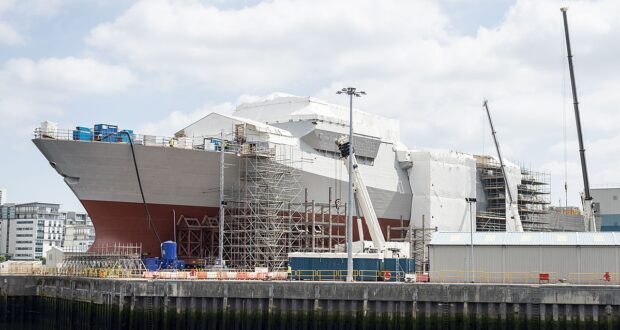15 December 2021
The UK House of Commons Defence Committee has released its report, ‘We’re going to need a bigger Navy‘, within which it has repeatedly cited evidence submitted by the HSC’s security and defence team. Key issues raised by the HSC regarding the purpose and procurement strategy of the Royal Navy and featured in the paper included:
- The limited level of preparedness by the Royal Navy to deal with new threats including hypersonic missiles, drones and other asymmetric systems that are becoming available to a widening array of actors
- That neither the River-class patrol vessels nor the Type 31 frigate on which the Royal Navy is basing much of its global footprint upon can be classified as ‘high-end’ combat vessels, and can only be used for lower-intensity taskings
- The necessity of the Royal Navy in investing in low-cost systems capable of generating mass and ensuring attrition
- A requirement to improve data-sharing between Navy platforms
- The challenges facing future Royal Marine amphibious operations from coastal anti-ship missiles
- A need to plan for contingencies where the US Navy is unavailable to support the Royal Navy as the result of the demands of great power competition or losses suffered in a great power conflict
- A requirement to adopt autonomous vessels to enhance fleet capabilities
HSC Deputy Director, Dr Rowan Allport, said:
“The HSC welcomes the findings of this report. In particular, we are grateful to the committee for highlighting the potential risk that a major war between the US and China would – almost regardless of outcome – result in the US Navy both suffering grievous losses and having to tie down the remainder of its fleet policing a ceasefire, thus leaving it unable to sustain a full global footprint in parallel with the Royal Navy. Given that even optimistically, it might take the US 15 years to fully recover, plans need to be put in place now to protect UK and allied interests in the maritime domain that are not entirely depended on the availability of US forces.”
Image: The Type 26 frigate HMS Glasgow under construction (source: MoD via OGL V 1.0)
 Human Security Centre Human Rights and International Security Research
Human Security Centre Human Rights and International Security Research




